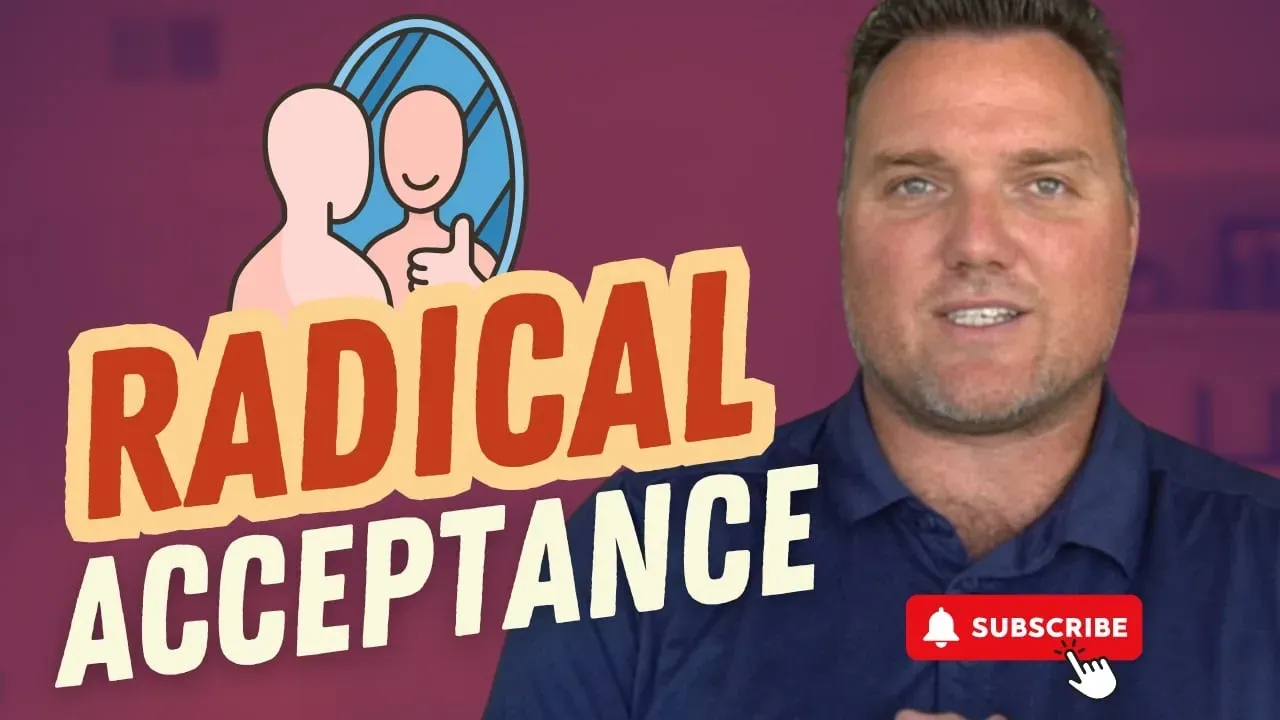Radical Acceptance for Anxiety and OCD: How Letting Go Reduces Suffering
May 07, 2025
Radical Acceptance: The Surprising Key to Reducing Anxiety and OCD Symptoms
Are you stuck in a cycle of anxiety, intrusive thoughts, or obsessive-compulsive disorder (OCD) symptoms, trying to "fix" or "change" how you feel? If so, you’re not alone—and the path out might be different than you expect. In this blog, we’ll explore the powerful concept of radical acceptance, as explained by Matt Codde, licensed clinical social worker and founder of Restored Minds.
What is Radical Acceptance?
Radical acceptance is the foundational practice of acknowledging and embracing your current experiences, thoughts, and feelings exactly as they are, without trying to change or manipulate them. According to Matt Codde, many people misunderstand acceptance as a tool to get rid of unwanted feelings or symptoms. In reality, true acceptance is about letting go of resistance and becoming okay with where you are right now.
How We Get Trapped: Using Acceptance as a Tool
One of the main pitfalls people fall into is using acceptance—not as acceptance—but as a sneaky attempt to change their symptoms:
“People learn about acceptance and radical acceptance... and they attempt to use it to get to a destination they believe they want to get to.”
When we use acceptance as a way to push away anxiety or intrusive thoughts, it’s not real acceptance. For instance, you might tell yourself, “I’ll accept these intrusive thoughts so they’ll finally go away.” But as Matt points out, this means you’re not actually embracing what is—you’re fighting it.
Why "Should" is the Enemy of Acceptance
Have you ever thought, “I shouldn’t be feeling this way,” or “I should be further along in my recovery”? These “should” statements breed resistance and keep you stuck in suffering. Matt explains:
“The idea of 'should' is the implication that things should be different than how they are, but they’re not. They just are the way they are.”
When we stop arguing with reality, we free ourselves from unnecessary stress and self-judgment.
How Radical Acceptance Reduces Suffering
Stress and suffering don’t actually come from unwanted thoughts, sensations, or external circumstances. They come from our resistance to them.
“Suffering doesn’t come from those things. It comes from your resistance to them.”
Radical acceptance is about changing your relationship with your thoughts and feelings—becoming okay with them, instead of fighting or avoiding them. Ironically, Matt highlights that the less you resist, the more likely the symptoms are to dissolve on their own.
Real-Life Examples of Acceptance in Action
Matt uses relatable examples to illustrate the paradox of acceptance:
-
The harder you chase after something, like a romantic interest, the more elusive it becomes—until you let go.
-
Many struggle with conceiving a child, only to find they get pregnant once they stop trying so hard.
-
Diets often fail because they come from a place of resisting your current self, creating more stress.
In each scenario, it’s the act of letting go—of truly accepting and not striving from a place of resistance—that promotes positive change.
Taking the First Step: Start With Acceptance
Radical acceptance doesn’t mean you can’t make changes or improvements in your life. But transformation can only happen when you stop fighting your current reality.
“Acceptance has to be the beginning of your journey.”
Whether you’re dealing with OCD, anxiety, or any other challenge, start by acknowledging where you are, right now, without judgment.
Learn More and Get Support
If you’re on a journey to recovery from OCD or anxiety, and want more resources, visit Restored Minds or consider applying for their 12-week “Taking Back Control” program. And if you’re in Southern California, check out the upcoming OCD SoCal conference for in-depth talks and support.
In Summary: The Power of Radical Acceptance
Radical acceptance isn’t about giving up. It’s about ending the internal fight, embracing your current state, and opening the door to genuine peace. When you change your relationship to your thoughts and feelings, you’ll find a foundation for lasting recovery and transformation.
If this topic resonates with you, please share this blog, leave a comment, and subscribe for more insights on mental health, acceptance, and reclaiming your well-being.


